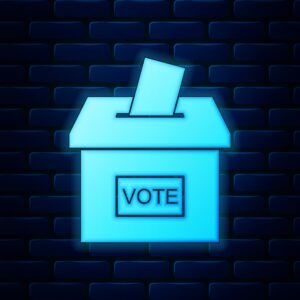
A new Minnesota law that criminalizes the act of spreading misinformation about voting is facing legal challenges from a local activist group.
A lawsuit filed earlier this month in Minnesota U.S. District court backed by the conservative-aligned Minnesota Voters Alliance is challenging the legality of the new law, calling it a violation of their First Amendment rights. They believe that they could potentially face prosecution for making claims about another new law that they are seeking to overturn, which grants felons on probation the right to vote. The group is also suing to overturn this new law.
“The Speech Code chills Plaintiffs’ speech by giving them reasonable cause to fear prosecution,” the group argues in their complaint filed Sept. 11. “The proper remedy for speech that one finds distasteful is not State punishment; it is ‘counterspeech’—calling out false statements and making the case as to why they are false.”
New Misinformation Law
Earlier this spring, the Democratic-Farmer-Labor-controlled legislature passed the law that makes it a gross misdemeanor offense to intentionally spread misinformation about voting within 60 days of an election. The law applies to misinformation about the time and place of an election or polling location, or about the qualifications and restrictions as it pertains to voter eligibility. The law also makes it illegal to imply or express threats to a person’s physical safety in regards to if or how they cast their ballot. For example, telling someone that they cannot vote because they are a felon would be punishable under the new law, as felons on probation will have their voting rights restored in Minnesota.
The gross misdemeanor is punishable by up to a year in jail and fines up to $3,000. It is just one of many major changes that passed in what is being touted as the “Democracy for the People Act,” which also restored voting rights to more than 50,000 people on probation and began pre-registration for 16 and 17 year olds.
We believe in the power of free speech, but there does need to be consequences for individuals who willfully and intentionally try to deceive others. If this law survives a legal challenge, it will be interesting to hear about the types of cases that are charged under the new law. The state will need to prove that someone intentionally spread misinformation, but so many people on both sides of the political spectrum are so willfully uninformed that it may be hard to prove that they knew they were spreading misinformation. If they only parrot talking points from their political echo chamber, them may be unintentionally misinformed. If someone truly believed what they were saying was true, but it turns out they were misinformed, will they be held criminally culpable? It certainly will be worth keeping an eye on.
In the meantime, if you’re up against a more common criminal charge, reach out to the team at Appelman Law Firm today at (952) 224-2277.





